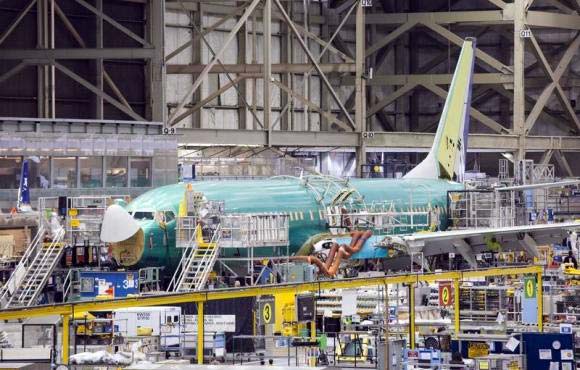Investment laws revised by next year
Updated: 2014-08-22 12:22
By Li Jiabao in Beijing and Jack Freifelder in New York(China Daily USA)
|
||||||||
Revisions to China's foreign investment laws are likely to be concluded by 2015, when the focus will shift to the supervision of individual investors and their respective conduct, according to an official with China's Ministry of Commerce.
Assistant minister of commerce Wang Shouwen said that tweaks to rules regarding foreign direct investment (FDI) in China "will probably be completed within the 12th Five-Year Plan", which covers the years from 2011 to 2015.
"It's still hard to say what the final versions will be like, but the revision of foreign investment laws is a key project," Wang said Thursday in an interview with China Daily. "The essential thing is that it will shift from the regulation of enterprises to the supervision of investors and their investment behavior."
"The revised foreign investment laws will define investors and investment conduct, but the stipulations in the Companies Law will remain in force," he said.
The Companies Law of the People's Republic of China was adopted in 1993 as a mechanism to help regulate the organization and operation of companies in the interest of a market-driven economic structure.
If the liberalization agenda announced by President Xi Jinping during the Third Plenum takes hold, then US investment in China should be set to increase, according to Gary Hufbauer, a senior fellow at the Peterson Institute for International Economics.
"A big increase in US investment in China depends pretty importantly on Chinese acceptance of mergers and acquisitions (M&A)," Hufbauer said in a Thursday phone interview with China Daily. "As President Xi and his team consolidate their power and compel some of the state-owned enterprises (SOEs) to be open to collaboration with foreign firms, I expect there will be more of this in the years ahead."
Wang said government officials are "also reviewing" the policies in the China (Shanghai) Pilot Free Trade Zone (FTZ) to "help build a unified, open, competitive and orderly market".
The FTZ, which functions as a trial region for a number of economic reforms, was approved in August 2013 and officially launched the following month.
It includes a negative list approach, which details sectors barred to foreign investment, as well as "pre-establishment national treatment," which gives foreign enterprises the same standing as domestic companies.
China was the world's second-largest recipient of foreign direct investment after the United States last year. But in the first seven months of this year, actual FDI inflows, excluding the financial sector, slid 0.35 percent from a year earlier to $71.14 billion, according to the Ministry of Commerce.
And in July, FDI into China totaled just $7.8 billion, a 17 percent decrease year-over-year and the lowest monthly figure in two years, according to a Monday report in The Wall Street Journal. FDI into China slowed in that period, but outbound FDI from China hit a new high of $52.6 billion - a 4 percent climb from a year ago.
Wang said the FDI decline in the first seven months of the year was caused by lagging investment in export-oriented and labor-intensive sectors, coupled with rising costs for labor, land and resources.
Citing a report from the United Nations Conference on Trade and Development, Wang noted that China remains the world's most attractive investment destination, and the investment environment is "improving rather than deteriorating" despite recent probes into foreign companies such as BMW AG and Microsoft Corp.
Hufbauer said there are some US companies that are "very enthusiastic" about the Shanghai FTZ and the potential it holds for future investments in China.
"Within the next couple of years, I think the Shanghai FTZ will be replicated in other parts of China - probably with some modifications and changes," Hufbauer said. "Other cities in China would certainly want to have [an FTZ], and after they work out some of the kinks they will get it."
"Based on what Chinese authorities have said, I don't expect to see any liberalization or foreign M&A in some of the pinnacles of the state-owned enterprise regime in China."
Contact the writers at lijiabao@chinadaily.com.cn and jackfreifelder@chinadailyusa.com
(China Daily USA 08/22/2014 page1)
Most Viewed
Editor's Picks

|

|

|

|

|

|
Today's Top News
Lawmakers in move to tackle espionage threat
Airplanes' skirmish still debated
Mugabe a frequent visitor to China
Australian MP apologizes for insulting Chinese
US hypersonic weapon destroyed seconds after launch
Cathay Pacific to launch new Hong Kong, Boston route
Duke Kunshan welcomes its first class in China
Consulate pioneers Facebook-diplomacy
US Weekly

|

|














